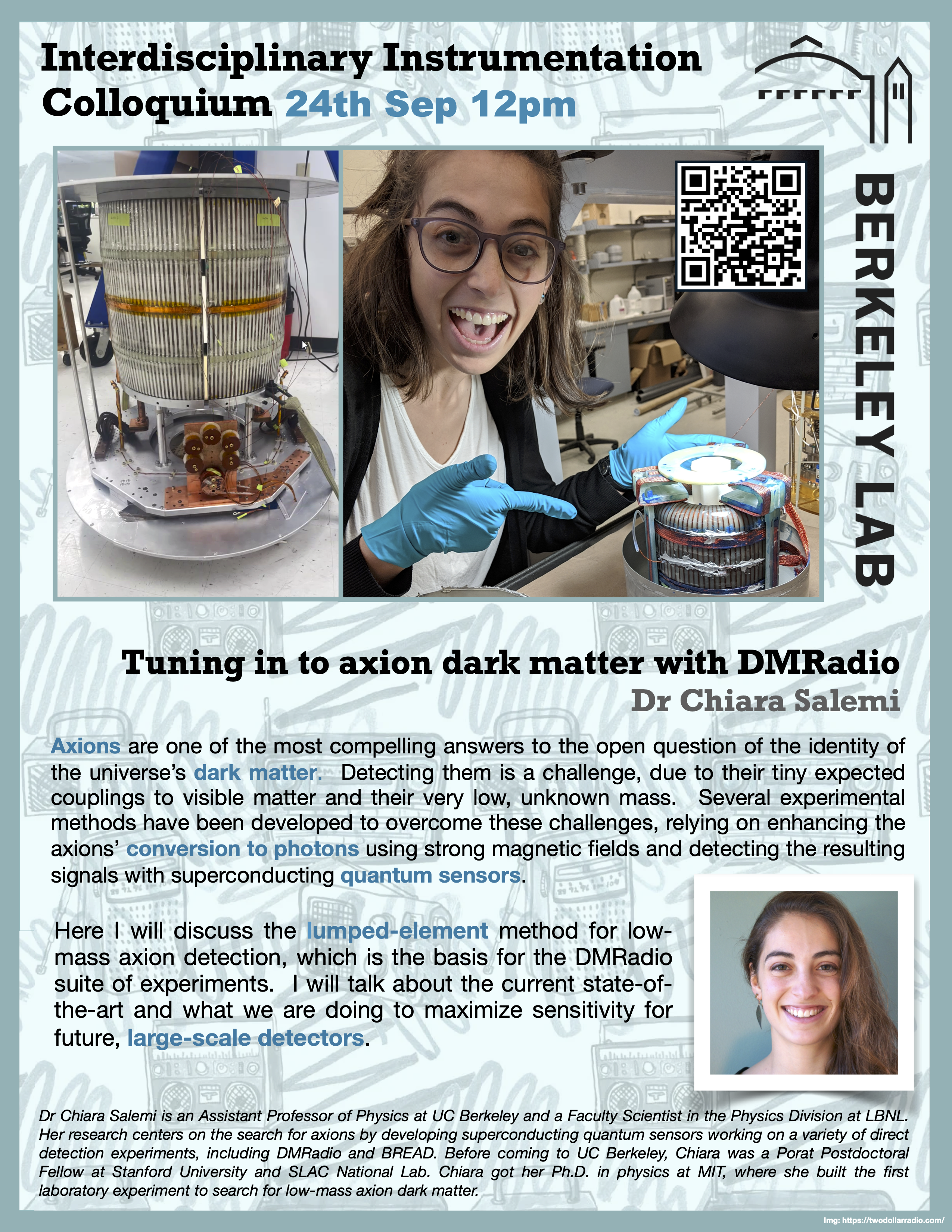Tuning in to axion dark matter with DMRadio
by
Auditorium
B50A

Axions are one of the most compelling answers to the open question of the identity of the universe’s dark matter. Detecting them is a challenge, due to their tiny expected couplings to visible matter and their very low, unknown mass. Several experimental methods have been developed to overcome these challenges, relying on enhancing the axions’ conversion to photons using strong magnetic fields and detecting the resulting signals with superconducting quantum sensors.
Here I will discuss the lumped-element method for low-mass axion detection, which is the basis for the DMRadio suite of experiments. I will talk about the current state-of-the-art and what we are doing to maximize sensitivity for future, large-scale detectors.
Dr Chiara Salemi is an Assistant Professor of Physics at UC Berkeley and a Faculty Scientist in the Physics Division at LBNL. Her research centers on the search for axions by developing superconducting quantum sensors working on a variety of direct detection experiments, including DMRadio and BREAD. Before coming to UC Berkeley, Chiara was a Porat Postdoctoral Fellow at Stanford University and SLAC National Lab. Chiara got her Ph.D. in physics at MIT, where she built the first laboratory experiment to search for low-mass axion dark matter.
rcarney@lbl.gov
